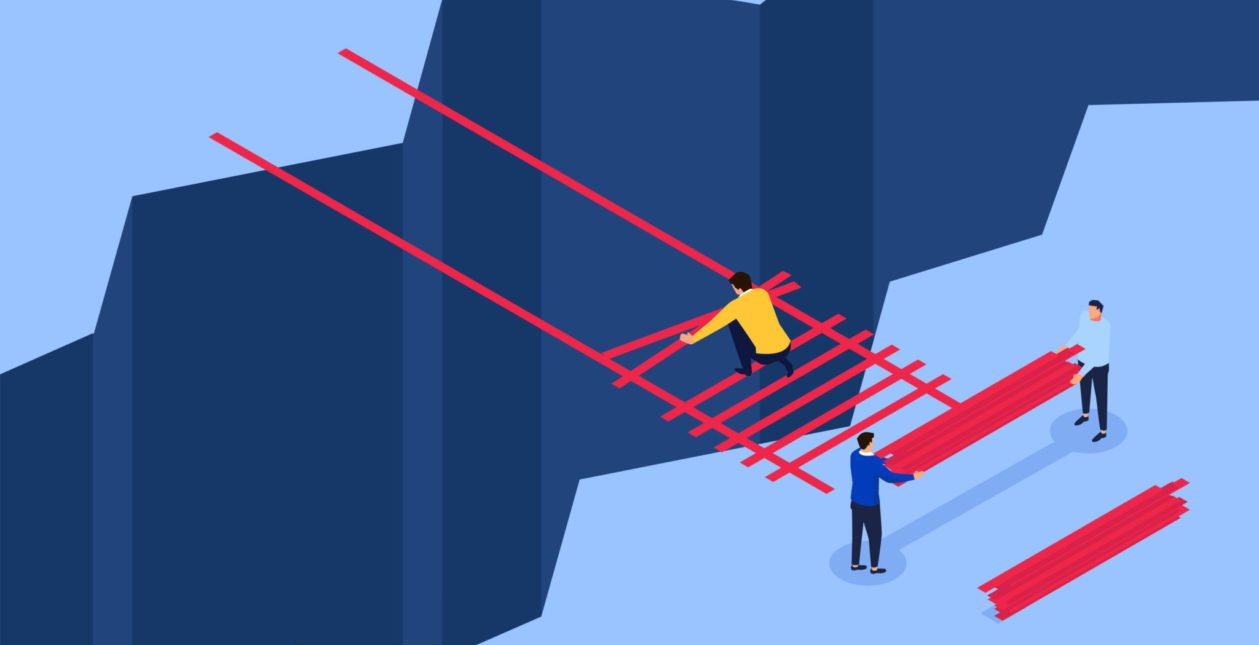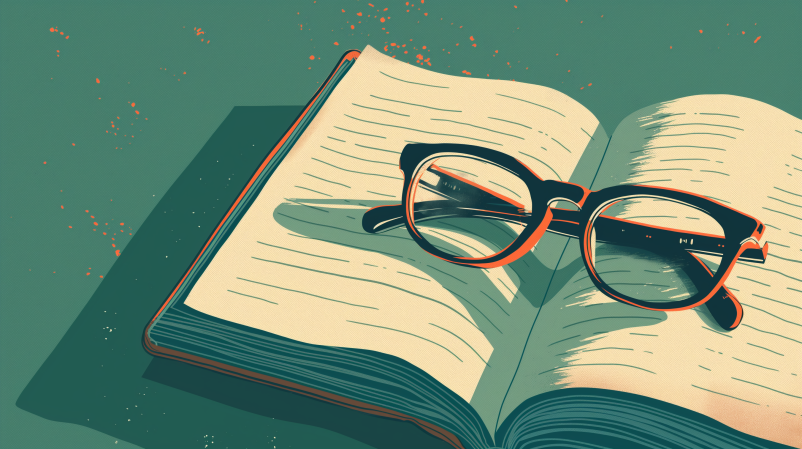Two days ago, I was on a call with an entrepreneur who I have been mentoring for quite some time now. She has been working on her startup venture for the last seven years. Earlier this year, she got her ‘big break’—a syndicate of investors who agreed to $13 million in funding. Three weeks ago, all $13 million of that committed funding was taken away.
Last week, I spoke with a first-generation college student who is slated to graduate from Harvard University this May. He is the first person in his family to graduate from college. His mother works at a dry cleaner and his father is a dishwasher at a restaurant in Chinatown—neither of them had ever taken more than two consecutive days off from work. But for his graduation, they had requested a full five days off, so that they could attend and proudly celebrate their only son’s hard work.

Given the devastating effects of this global pandemic that we’ve been experiencing, you can imagine where this is going. There is now no graduation being held, and the five days off from work that they had been looking forward to has now become 28 days off from work, after both lost their jobs. At first, my student held on to a silver lining: that he could still support his family with the job that he had lined up after graduation. But last week, he received notification that his offer had been rescinded.
I recently released my first book, a book about adversity—the type of adversity that this entrepreneur and this first-generation college student have faced. More topically, it’s a book about how to turn adversity into advantage. I’ve had dozens of colleagues, friends and readers tell me that I need to provide advice based on what I have researched and studied. We have seen so many people claiming to be experts and giving their opinions on adversity, despite having no credible reason to be doing so. Whereas, I’ve been studying adversity for more than a decade, conducting study after study on how we can inoculate ourselves against adversity and obstacles and challenges, so that we can create our own opportunities and advantages.
And so, I tried. But I failed. I’m supposed to be this expert, and yet, I have felt completely stunned and stunted by this pandemic, unsure about what I could possible say.
The first time I tried to write something about this topic, I wrote something, but I didn’t actually say anything. A good friend of mine who read my piece commented that it felt like I had just yanked something from other things that I had written, as if I had tried to repurpose. (He was completely right.) He bluntly told me that I needed to do a lot better. He told me that I had to do better for everyone—for top executives who are stressed to the breaking point because they literally have no sales, are laying off just about everybody off and have no idea what to do; for the doctors and nurses and health care professionals who are scared, overwhelmed and feeling completely helpless; for all of the minorities who are frustrated and feeling desperate and disproportionately facing higher rates of infection and death; for each and every individual, who is facing his or her own flavor of adversity, be it physically, emotionally, professionally, spiritually or all of these at once.

He said to me, “You have the answers.” He said, “Give them something they can share and be reassured that by following your advice, based on extensive research and experience, they can come out stronger than before. And I am not talking about the adage of failure making you stronger.”
But I’ve got nothing. Except that I have friends like him who are worth their weight in gold. Friends who are willing to be blunt and honest, in the name of turning adversity into advantage.
None of us are experts. None of us have all the answers. We are all feeling immense uncertainty and none of us are truly in control, really. Once I allowed myself to acknowledge that no one is an expert here, myself included, I started to feel some of that enormous weight lift off me. I started to give myself permission to think about what advice I could give to people—what advice I have been giving to people like that entrepreneur who lost $13 million in a blink of an eye and that student of mine who saw the future he had envisioned for himself disappear abruptly.
Here’s the advice I’ve been giving.
Put Down That Enormous Weight
You cannot solve a complex, multi-step equation in your head. You need to be able to isolate variables, simplify pieces that can be simplified, think differently about terms inside versus outside the parentheses. What I mean by this is that you can only tackle one thing at a time.
Prioritize what you need to tackle first and have a vague (flexible) plan for what you’ll subsequently address. First step is to “stop the bleeding.” If you’re that entrepreneur, commit yourself to existing revenue streams that allow you to weather the storm. Then, you can think about how to continue to support customers in authentic, viable ways. If you’re my student, first, take stock of what you and your family collectively do have…which brings me to my next point.
Group Together
The more we socially distance, the more we should socially associate. It takes a village to raise a child. But in recent years, we’ve forsaken our village. Ask for what you need. Provide to others what you have stockpiles of, be it physical goods or emotional, spiritual or professional support.
In the business world, we talk about the power of networks—strong ties that provide us with deep connections, weak ties that provide us with informational flow. This has most often been applied to getting you the job/contract/opportunity you’ve been looking for. But extend this further. My student and his family are in need. But they also have so much to provide, and by reaching out to me, a weak tie, he helped me gain a whole new perspective on how I can help not only him and his family but also many others, which, in turn, he has paid forward.
Perspective Taking
Don’t let guilt get in the way of understanding and being a part of humanity. As I so distinctly experienced and shared, I felt stunted and numbed to the point where I, as a writer, couldn’t write about any of the disasters of this pandemic. I started every conversation with, “I’m so lucky in the grand scheme of things…” and “There are so many that are worse off than I am.” But that guilt prevented me from putting myself in the shoes of others. There are going to be drawdowns, low points, periods of depression and anxiety. We are all being impacted differently, which means that we are all going to need to handle this differently. That is OK, and that is necessary, even.
At each low point, commit to sharing your perspective with someone else, be it a professor, a friend you’ve lost touch with, an acquaintance who you promised to look up next time you were in their city (you won’t be, so what better opportunity to write them and wittily acknowledge it). And at each low point, commit to reaching out and eliciting the perspective of someone else.
Remember Your Basic Goods
In my book, I talk about your basic goods. What are your superpowers? Remember your basic goods and build off of those. There is so much pressure on us to be thinking about new product and service ideas, to take this “opportunity” to build new skills. You need to prune to grow. Go back to your basics. That’s when you’re going to be in a place to see and act upon opportunities.
If you’re the leader of a large organization, what are the two or three things that really made your first 5 to 10 customers passionately fall in love with your product or service. That’s where you’ll find your North Star, which will allow you to dust off old things or seek out new oceans.
Look for Inefficiencies, Not Opportunities
Opportunities have a certain type of connotation—some type of selfish, opportunistic association where your gain is based on someone else’s loss. Instead, look for inefficiencies. Where are we lacking, where are things not operating as efficiently or as effectively as they could? There were inefficiencies that existed before this pandemic, and there are new efficiencies that have cropped up since. The ones that come to my mind immediately are things like supply chain issues, deliveries and goods out of stock. But through your own expertise, based on your basic goods, you have the ability to see completely different inefficiencies. Write a different story, with a different story angle, based on who you are and your before-and-after viewpoint before this tsunami uprooted all of our lives.
It may say Harvard professor on my business cards, and I may be an “expert” in adversity. But all I can do is leave you with these thoughts, which, this time, is the result of a genuine lightening from the weight lifted off me. Because I am also hopeful. I do believe that we can turn adversity into advantage. I can’t solve unemployment. I can’t solve bias and inequality. I can’t even help 99.9 percent of the people that I want to help. All of the advice that I’m providing may sound completely trite. But I know that I was able to provide some perspective and some relief to one entrepreneur and one student. I can help one person at a time. In my village. Which is all any of us can hope to do.
Laura Huang is a professor of business administration at Harvard Business School and the author of Edge: Turning Adversity into Advantage.







